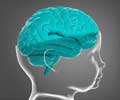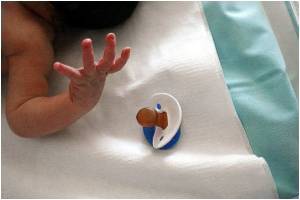Language is a key obstacle to meeting guidelines for educating parents of newborns about 'shaken baby syndrome' - also called abusive head trauma (SBS/AHT).

‘Language is a key obstacle to meeting guidelines for educating parents of newborns about 'shaken baby syndrome' - also called abusive head trauma (SBS/AHT).’





"Resources such as SBS/AHT brochures in different languages, and translators to facilitate SBS/AHT education for non-English-speaking parents/guardians need to be available for nurses," writes Leslie Rideout, of Floating Hospital for Children at Tufts Medical Center, Kiwanis Pediatric Trauma Institute, Boston. The new research also highlights the importance of supportive leadership in facilitating effective education about this critical child health issue. In 2006, Massachusetts passed legislation aimed at preventing SBS/AHT-including a mandate to provide education about SBS/AHT. Dr. Rideout surveyed nurses at Massachusetts birthing hospitals and birthing centers about barriers to and facilitators of efforts to educate new parents about SBS/AHT.
On analysis of responses from nearly 200 nurses, language was a key barrier to providing education about SBS/AHT. A lack of informational brochures in different languages and the unavailability of translators contributed to the difficulties of communicating with non-English-speaking parents/caregivers.
Nurses whose hospitals provided brochures in different languages were three times more likely to say they 'always' carried out the SBS/AHT educational guidelines. Nurses who were able to provide SBS/AHT education for non-English-speaking parents were five times more likely to consistently provide verbal education about strategies for soothing a crying infant.
An atmosphere of 'supportive leadership' at the hospital was identified as the major facilitator of implementing the SBS/AHT educational guidelines. Nurses at hospitals with supportive leadership were eight times more likely to say they 'always' documented SBS/AHT education in the medical records.
Advertisement
While the new study has limitations including a low survey response rate, the findings help to identify key factors that help and hinder recommended education on preventing SBS/AHT for parents/caregivers of newborns. Dr. Rideout highlights the need for hospital leadership to support nurses in meeting the need for education-with special attention to providing educational materials and overcoming language barriers. She concludes, "It is important that funding for this public policy be supported so that needed resources and education are available to nurses to ensure that the SBS/AHT guidelines are implemented."
Advertisement












